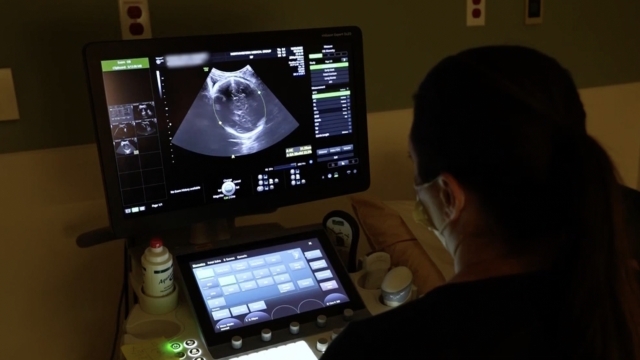The Food and Drug Administration has approved two gene-editing treatments for patients 12 and older suffering from severe sickle cell disease, but they come with health risks doctors want patients to know about.
Right now, around 100,000 Americans have the disease, which disproportionately affects Black people. The newly approved treatments are Lyfgenia from Bluebird Bio, and Casgevy from Vertex pharmaceuticals.
Dr. Asmaa Ferdjallah is excited about the two new treatments for sickle cell disease. She says her patients have been asking about them for years.
"When I think of gene therapy, I actually think of it as expanding on health equity. I think it actually gives more options to patients who did not have options before," Dr. Ferdjallah, a pediatric hematologist at the Mayo Clinic told Scripps News.
But that excitement comes with a caveat.
"Gene therapy is exciting in that it gives us another avenue or another option to offer our families, but it doesn't ease the burden of complications. It doesn't ease the burden of side effects," said Ferdjallah.
One big side effect is infertility.
Ferdjallah explains that while the new treatments are infusions, it's not as simple as going into a center, getting an IV infusion and you go home and are cured. For now, patients must go through a process called conditioning to prepare their bone marrow for the genetically modified cells.
SEE MORE: FDA approves first gene therapies to treat sickle cell disease
"Especially in pediatrics, where we tend to be conservative, this process occurs entirely inpatient in the hospital. Patients are actually in the hospital with us anywhere between two and six weeks, potentially longer, depending on any complications," she says.
The process also contains high-dose chemotherapy with drugs like busulfan, which can impact the reproductive system.
"Your ovarian reserve is kind of a measure of how many eggs you have in the basket. And for women, we are all born with as many eggs as will ever have right at birth. So we don't make new eggs, unfortunately, as we get older," Dr. Vrunda Patel, a pediatric obstetrician-gynecologist with Nemours Children's Health says.
Dr. Patel explains that sickle cell disease already lowers those numbers; high dose chemotherapy lowers them even more.
The FDA has also required a box warning and lifetime monitoring for Lyfgenia after three patients died in the trials for the treatment. One was from sudden cardiac arrest due to underlying disease and two were from blood cancer. Bluebird bio says an earlier version of the drug and a different transplant procedure were used at the time.
Patients receiving Casgevy will be tracked by its drugmaker for 15 years.
"There could be interactions between the busulfan and the each of the different products themselves so that they might have different overall safety profiles," Peter Marks, the director of the Center for Biologics Evaluation and Research (CBER) at the Food and Drug Administration said in a Dec. 8 press call when the approvals were announced.
Sickle cell patients do have options for fertility preservation. For patients 12 and younger, the parent makes that choice; from ages 12 to 17, the patient must also assent.
The National Institutes of Health is currently researching a gene-editing treatment that would protect sickle cell patients' fertility. So far, it's been successful in animal studies.
Trending stories at Scrippsnews.com




